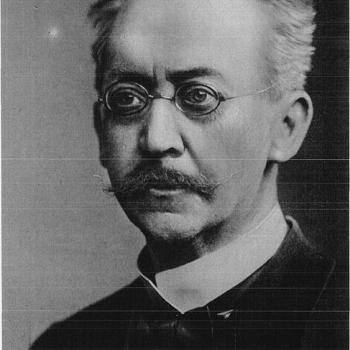
Image by geralt (12-4-13) [Pixabay / CC0 public domain]
*****
(1-21-01)
*****
As a Christian apologist (first evangelical Protestant, now Catholic) and a philosophically-minded person (and, I hope, also a fair-minded and open-minded one) who has engaged in more than 20 years’ worth of discussions with people of almost every conceivable point of view, I have come to some conclusions about the various types of discourse, and which are more fruitful and constructive than others. I distinguish between what I call mutual monologue and dialogue. The first is the following procedure:
Mutual Monologue I: Between Two Christians of Different Persuasions
1. X presents position A with a multitude of biblical proof texts and historical evidences.2. Y basically ignores or quickly dismisses X’s biblical proof texts and historical evidences for position A with a one-sentence “reply” and proceeds to present position B with a multitude of alternate biblical proof texts and historical evidences.
This is what I would call “a war of competing proof texts” or a “mutual monologue,” and I don’t find it very helpful or constructive myself, for further understanding or learning on either side.
Mutual Monologue II: Between a Christian and a Non-Christian
*
1. X (Christian) presents Christian position A with a multitude of rational and historical proofs.
2. Y (non-Christian) basically ignores or quickly dismisses X’s proofs for Christian position A with a one-sentence “reply” and proceeds to present non-Christian position B with a multitude of alternate rational and historical proofs.
Dialogue, or a dialectical approach (in my view, anyway), would be the following:
True Dialogue I: Between Two Christians of Different Persuasions*
1. X presents position A with a multitude of biblical proof texts and historical evidences.
2. Y offers alternative and (so he thinks) superior explanations of each of X’s biblical proof-texts and historical evidences, and then presents his own biblical proof texts and historical evidences for position B.
3. X offers alternative and (so he thinks) superior explanations of each of Y’s biblical proof-texts and historical evidences, counter-responds to the critique of his own previously-stated biblical proof texts and historical evidences, and then presents more of his own biblical and historical proofs (if he has any more on the subject).
4. Y again offers alternative explanations of X’s contentions, and/or counter-responds to X’s counter-response (or concedes the argument if position A is superior) . . . Etc.
5. X does the same in turn (if Y is still maintaining his position) and either proceeds or concedes the argument if position B is superior . . . Etc.
True Dialogue II: Between a Christian and a Non-Christian
1. X (Christian) presents Christian position A with a multitude of rational and historical proofs.
2. Y offers alternative and (so he thinks) superior explanations of each of X’s rational and historical proofs for Christian position A, and then presents his own rational and historical proofs for non-Christian position B.
3. X offers alternative and (so he thinks) superior explanations of each of Y’s rational and historical proofs for non-Christian position B, counter-responds to the critique of his own previously-stated rational and historical proofs, and then presents more of his own rational and historical proofs for Christian position A (if he has any more on the subject).
4. Y again offers alternative explanations of X’s contentions, and/or counter-responds to X’s counter-response (or concedes the argument if Christian position A is superior) . . . Etc.
5. X does the same in turn (if Y is still maintaining his position) and either proceeds or concedes the argument if non-Christian position B is superior . . . Etc.
This is what I have complained about Protestant (and Orthodox) apologists rarely doing. They virtually never engage in the second process; what I call “true dialogue.” They often engage in the first: the war of the biblical proof texts and/or historical evidences (because they have plenty of alleged proofs for their own position). But if they don’t engage our best proofs, how can they hope to fairly compare the two positions (assuming they want to do so in the first place, which is by no means certain)? I don’t buy it.
When two Christians are debating, what they definitely have in common (among several other things) is a reverence for Holy Scripture, so that they can carry out their argument under that framework, and try to compare interpretation with interpretation, to determine which hermeneutical and exegetical explanation has more validity, plausibility, explanatory value, and internal consistency with other aspects of their theological position.
But if there is never any true give-and-take, or interaction, or respectful and reasoned consideration of the opponent’s arguments, this can’t occur, and it is simply two ships passing in the night. That is the sort of discussion I have no interest in. It is no better than each person reading material from the other camp, but going no further.
Likewise, with the non-Christian critic of Christianity. Oftentimes, the non-Christian (either religious or agnostic) will engage in mutual monologue rather than true dialogue. Note that I have omitted any mention of biblical proof texts in discussions between Christians and non-Christians, because they do not hold this presupposition (or axiom or premise) in common. One must argue in favor of the validity and trustworthiness of revelation and Scripture, by means of reasoned and historical proofs, archaeology, manuscript evidences, fulfilled prophecies, miracles, experiential proofs, etc.
Once it is agreed that Scripture is divinely inspired, then the two parties can argue over its interpretation. Prior to that point, the Christian must argue on rational and historical grounds (the second actually being a subset of the first), whether presenting his own position or critiquing the non-Christian one (because that is what most thinking people of any persuasion hold in common).
In any event, both sides need to truly interact with their opponents’ point of view and demonstrate both its logical / ethical / philosophical / scientific weaknesses and the superiority of their own position. Simply stating one’s position and assuming it is self-evidently superior, or appealing to numbers of adherents or academics, etc. will not do. That is not rational argument; it is simply proclamation.
But all good discussion presupposes a minimum of respect both for the other’s position and his rational faculties and honesty. To question any of these three factors at a foundational level is to doom the discussion from the outset and virtually assure a scenario rife with ad hominem attacks and personal insults, or rudeness, condescension, and the like.
This frequent lack of true dialogue is why, e.g., anti-Catholics (whether Protestant, Orthodox, or Anglican) and Catholics can rarely engage in constructive discussion. The former refuses to grant the latter the status of Christian from the outset. This leads to an inevitable lack of respect (at least in the Catholic’s eyes) and – almost always – therefore to insults and a superior-subordinate, condescending relationship, rather than a mutually-respectful side-by-side dialogue of rational and religious equals.
Likewise, this is the case with discussions between the Christian and the non-Christian. Very frequently, the latter disdains the former as irrational and gullible, or in need of a psychological crutch, or intolerant or bigoted, or irredeemably hypocritical, or stuck in the distant past, etc. (i.e., all the stereotypes which get passed down about Christians and Catholic Christians in particular). If these are present, along with a certain arrogance and lack of open-mindedness to have one’s misconceptions corrected, good, true discussion will be well-nigh impossible.
If the non-Christian will neither interact with the Christian’s arguments (provided they are conducted within mutually agreeable parameters and presuppositions), nor respond to critiques of his own position, then there is no point in having a so-called “dialogue,” because what will then occur is, in fact, a mutual monologue. Non-Christians hate to be “preached” to; well, by the same token, most Christians resent being lectured by non-Christians (especially if such a lecture contains some of the false caricatures mentioned above). Both sides would prefer a legitimate, mutually respectful discussion and meeting of the minds.
But Christians, too, have their own set of flaws and shortcomings, when engaging in discourse with non-Christians. The latter are often regarded as amoral or immoral, or inherently insincere, simply due to the fact that they are not Christians, or they are viewed with suspicion as part of some nefarious conspiracy to bring down Christianity, or western civilization, or societal morality. There are all sorts of false stereotypes that Christians carry about non-Christians, particularly atheists and agnostics.
In all cases, it remains true that one must engage in discussion with not only an intent to teach and correct, where necessary, but also to learn and understand the opponent, and to be corrected or to change one’s opinion, wherever this is warranted. One must extend the benefit of the doubt and of charity to a dialogical opponent, and never question their honesty or basic intelligence or sincerity, failing the most compelling of repeated evidences to the contrary.
This, in my opinion (based on long personal experience), leads to good discussion and learning and friendship, and admiration, and mutual respect (and yes, conversions, too, in some instances), and is the philosophy I try to always uphold and live by in the course of my apologetic work and discussions online and “in real life.”













